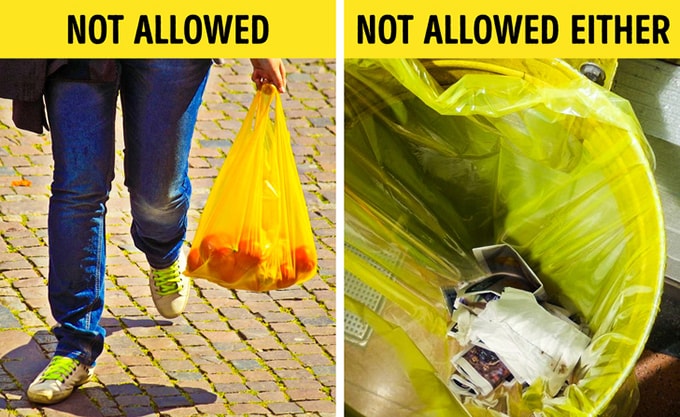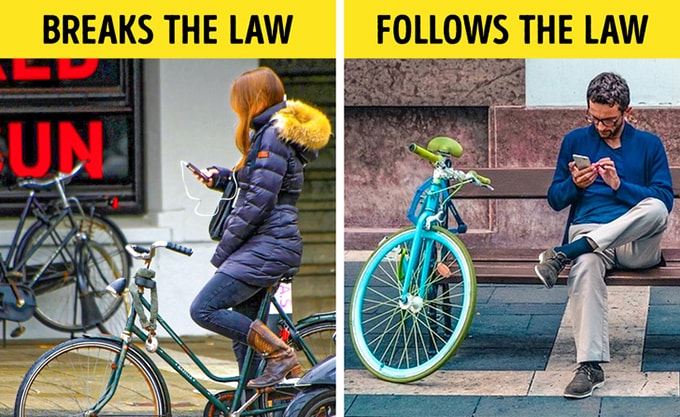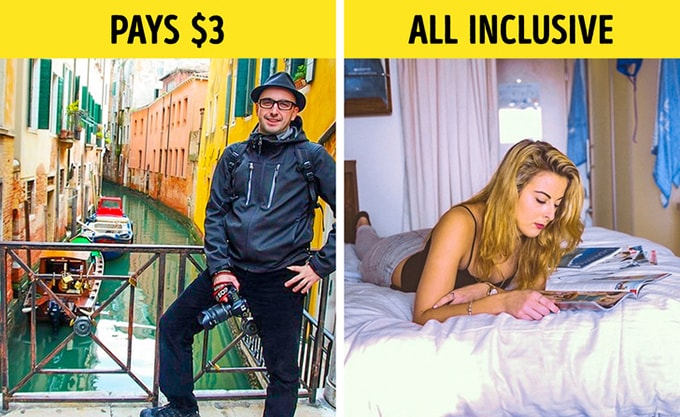Ban wearing bikinis, carrying plastic bags, building sandcastles when traveling
Wearing bikinis in Bali, building sandcastles in Boracay or eating on the streets in Florence will soon be banned.
|
Bali (Indonesia): Bikini banned The famous resort island in Indonesia recently issued a regulation restricting tourists from wearing bikinis freely walking on the beach. This seemingly normal action has become offensive in Bali because there are many temples located right next to the sea, many tourists are casually dressed in revealing clothes, freely posing right in front of the sacred structure. This regulation was issued at the end of 2018, aiming to limit tourists' encroachment on spiritual places, which are important to local people. |
|
Ko Samet (Thailand): Plastic bag ban Ko Samet Island in the Land of Golden Pagodas has an environmental ban, which is the ban on the use of plastic bags. If you break the law, you can be fined. The reason for this ban is that the island has been devastated by tourists for a while. The island welcomes 1,500 tourists a day, bringing in a huge economic benefit. But after each group leaves, the national parks and beaches are covered in plastic bags, bottles and other trash. |
|
Boracay (Philippines): Ban on building sandcastles Tourists all over the world will surely remember the time when this magical island announced it would close to visitors due to excessive pollution. After 6 months of applying many measures to clean the sea water and sand, the government of this country spent up to 20 million USD. To prevent a recurrence, upon reopening, authorities have introduced strict regulations such as no smoking, drinking or eating on the beach to minimize the amount of waste discharged into the sea and to preserve the natural landscape as much as possible. Children are not even allowed to build sandcastles to avoid affecting the natural sand. |
|
Rome (Italy): Ban on washing feet in fountains Since January this year, the central area of the Italian capital has implemented a number of regulations to prevent tourists from damaging historical structures, while reducing noise and air pollution caused by tourists. The Roman government has banned acts such as vandalizing the Colosseum walls or washing feet in fountains. |
|
Florence (Italy): No eating on the street The city welcomes over 10 million tourists from many countries around the world every year. Florence is always full of tourists eating and resting along the streets. The government realized that this behavior had a negative impact on the city's appearance. Therefore, since 2018, sitting on stairs and eating has been illegal. However, the ban only applies to four central streets. If you break the law, you will be fined $500. |
|
Netherlands: Ban on using phones while cycling In the Netherlands, cyclists are not allowed to talk on the phone. This rule concerns many tourists because the experience of renting a bike and leisurely riding through the old streets of the capital Amsterdam and many other cities has become very popular. Tourists renting bicycles must now stop if they want to take a call, or face a $250 fine. Talking while driving a car was previously illegal, but from July the rule will apply to bicycles as well. The reason is simple: the number of accidents is high. |
|
Venice (Italy): You have to buy a ticket to go anywhere Locals in Venice are frustrated by tourists. They complain that there are so many that they can't go to work or leave their homes. That is why from May 1, tourists will have to pay a fee of 3 USD/day if they want to visit the old quarter, if they do not pay the ticket, you will be fined up to 450 USD. Those who rent rooms in this quarter will not have to pay an entrance fee, however, they will have to pay a tourist tax. |








